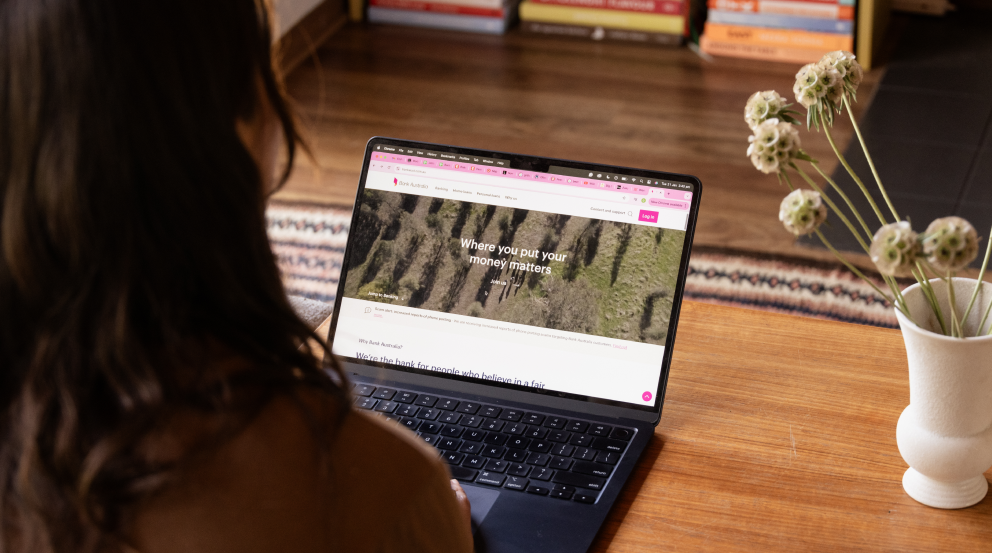As a nation, Australia not only has a healthy appetite but an adventurous palette, too. From our cities to our regional towns, you can barely move without clapping eyes on some kind of imported snack.
It follows, then, that someone might start putting our fascination with good food to good use. And with an enormous captive market of food-prone humans in Melbourne, that’s exactly what Loretta Bolotin did with her social enterprise, Free to Feed.
Having spent the best part of her career working in the humanitarian sector, and supporting refugees and people seeking asylum in Australia, Loretta gained acute exposure to the issues these people face.
Whether it was housing, or getting kids into school, or figuring out what they might do for work – these were issues she would help people navigate on a daily basis. She also spent time working in detention centres, with people whose only option was to imagine a safe arrival into Australia.
Through all of this, Loretta began to notice some unfortunate trends. “There were just so many hurdles for them to get over,” she says. “Language barriers, not knowing anyone, being on the outskirts of communities, they were just figuring out how to start again. Landing that first job in Australia, in particular, is really, really challenging. People get lonely.”
Dissatisfied with the level of change she was able to affect within the “big institutions” she’d been working for, Loretta and her partner Daniel began dreaming up ways in which they might be able to respond to some of these problems; things they could do to help in a more tangible way. Daniel’s family had arrived in Australia as refugees in the ‘70s, had been forced to start again, and had built a new life from scratch – so the couple had a case study to tap into for ideas.
Throughout the course of her working career, Loretta had often been invited to eat with the people she was working with. From barbecues to traditional Afghan banquets, she’d experienced a wide-range of culinary experiences from all over the world. “I began to think there might be something in that,” she says. “That sharing, that coming together – using food as the catalyst to start a conversation, and provide that connection for new arrivals in Melbourne.”

This idea, of using food as the connective tissue between new arrivals and their new lives in Australia, was the lightbulb moment that eventually led Loretta and Daniel to Free to Feed, which they started in 2015.
The gist is this: Free to Feed provides employment, professional development and training in cooking and hospitality skills to recently-arrived refugees and asylum seekers, who then host a range of authentic food experiences (from cooking classes at their Northcote HQ to private cooking experiences in your own home, and even catering services) to hungry paying customers (like you).
Since 2016, the enterprise estimates that it’s provided over 16,000 hours of paid training and distributed over $400,000 in wages to people seeking asylum and refugees.
“It's all centred around training, employment and skills development, but also the intangibles like helping people feel connected, and build confidence, become part of the community, and have a place to belong,” says Loretta. “Our program participants come in, often quite nervous, and over the course of the 8-12-month program, they develop their language skills, increase their confidence, and their employability improves. It’s totally transformational. But they also just meet and connect with so many people from the local community who attend their classes. It’s just lovely.”
The benefit to their participants and employees is clear. But paying customers have a hell of a lot to sink their teeth into as well. Think about it: many of us travel far and wide – even travel the world – in search of unique, delicious and memorable food experiences. And here’s an organisation, in our own backyard, full of incredible people who will come to your house (or host you in their Northcote kitchen), and prepare you a home-cooked meal from their home country, while telling you all about the food, their life, and sharing their stories with you.
“People might do it for a 30th birthday, a special event or a dinner party,” says Loretta of Free to Feed’s at-home experience. “We know Melburnians are looking for high-quality food experiences, and we know a lot of them want to do something that’s meaningful, and gives back. The fact they can have these experiences in their own homes, and learn about Persian or Syrian or Iraqi food and culture – and get a sense of all these beautiful things, culminating in a gorgeous banquet of food … it’s incredible.”




.png)



